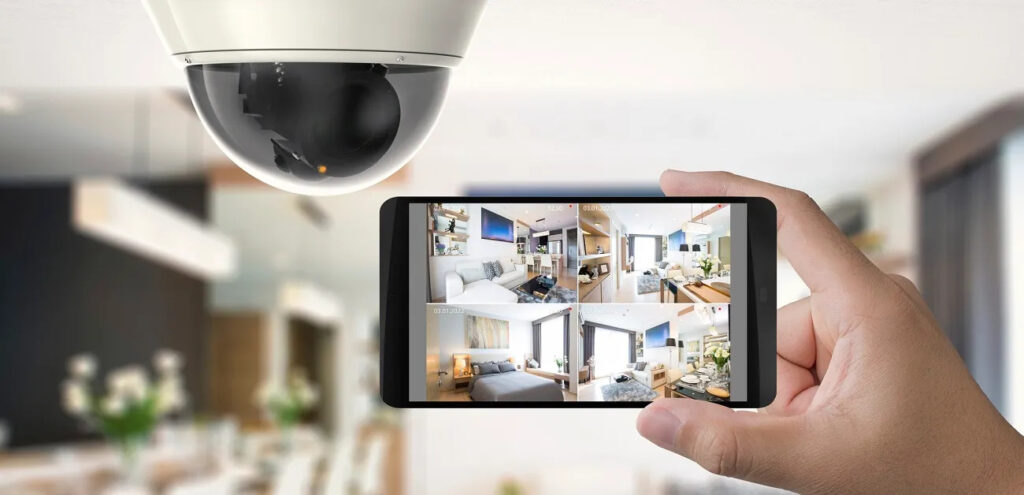
Airbnb has banned the use of all indoor security cameras in its listings worldwide, a move enacted amid concerns about privacy in vacation rentals, hotels, public bathrooms, locker rooms, and cruise ships.
The company said that most listings do not have indoor security cameras, but it was prioritizing privacy. Security cameras were previously allowed in common areas as long as hosts disclosed them to guests before booking. The policy update, which takes effect April 30, prohibits security cameras anywhere inside properties, even if visible. Airbnb will continue to allow outdoor security cameras, noise decibel monitors, and doorbell cameras, but hosts must disclose their presence and location before guests book.
According to Airbnb’s newsroom, Airbnb’s head of Community Policy and Partnerships, Juniper Downs, said,“Our goal was to create new, clear rules that provide our community with greater clarity about what to expect on Airbnb. These changes were made in consultation with our guests, hosts, and privacy experts, and we’ll continue to seek feedback to help ensure our policies work for our global community.”
The ban on indoor security cameras in Airbnb listings is essential for several critical reasons. First and foremost, it serves as a vital measure to protect the privacy and security of guests.
Hidden cameras in rental properties can infringe upon guests’ privacy rights, leading to discomfort and potential exploitation. By prohibiting indoor security cameras, Airbnb is committed to transparency and trust between hosts and guests. This fosters a sense of reassurance among guests, knowing their privacy is respected, ultimately enhancing satisfaction with the platform.
In response to inquiries about Airbnb’s recent decision to prohibit cameras in bedrooms and bathrooms of rental properties, Matthew Krueger, an Airbnb and real estate mentor and host, highlighted the distinction between existing and updated policies. He clarified in an email, “Airbnb has ALWAYS BANNED cameras inside of private spaces, like bathrooms and bedrooms, but allowed them in common areas such as living rooms and kitchens.”
He noted that the recent update extends the ban to all indoor cameras, affecting primarily those in living rooms and kitchens.
Krueger emphasized the potential impact of this policy change on hosts and guests, particularly those renting out a single room within their property. He expressed concern that the inability of hosts to have cameras in these common areas might put them at risk, especially in shared living situations where personal property is involved. Krueger suggested that the new rule could disadvantage hosts with shared properties.
While Krueger didn’t share personal experiences related to privacy concerns in short-term rentals, he expressed confidence in the majority of hosts respecting guests’ privacy.
“I do not have any privacy concerns within short-term rentals myself. I believe that 99% of hosts respect their guest privacy,” he said.
However, he acknowledged isolated incidents tarnishing the reputation of the broader community.
Regarding further steps Airbnb could take to enhance privacy and security for users, Krueger commended the platform’s existing measures.
“All in all, I feel like Airbnb does a really good job of ensuring the security of guests,” he said.
Moreover, the ban addresses legal and ethical concerns surrounding hidden cameras, ensuring hosts comply with relevant laws and regulations. It also mitigates various risks associated with surveillance, including voyeurism, cyber hacking, and unauthorized distribution of footage.
By proactively addressing privacy concerns, Airbnb helps maintain its reputation as a responsible and ethical company, attracting more users and fostering long-term success in the sharing economy.
Jonathan M., an Airbnb customer service representative, said, “The reason for the ban is for privacy, and Airbnb wants to improve and ensure the safety of all guests continuously.”
There have been many instances where hidden cameras were found in Airbnb hosts’ homes, which led to lawsuits with the guests suing the homeowners for different cases such as invasion of privacy, inflicting emotional distress, distributing sexually explicit materials, and distributing videos. Hidden cameras in Airbnb rentals raise significant privacy concerns and are considered unethical and often illegal.
Airbnb has said it will continue to monitor feedback and adjust its policies as needed. By fostering open communication and collaboration with its community, Airbnb aimed to set a new standard for privacy in the sharing economy, possibly inspiring other platforms to follow suit.